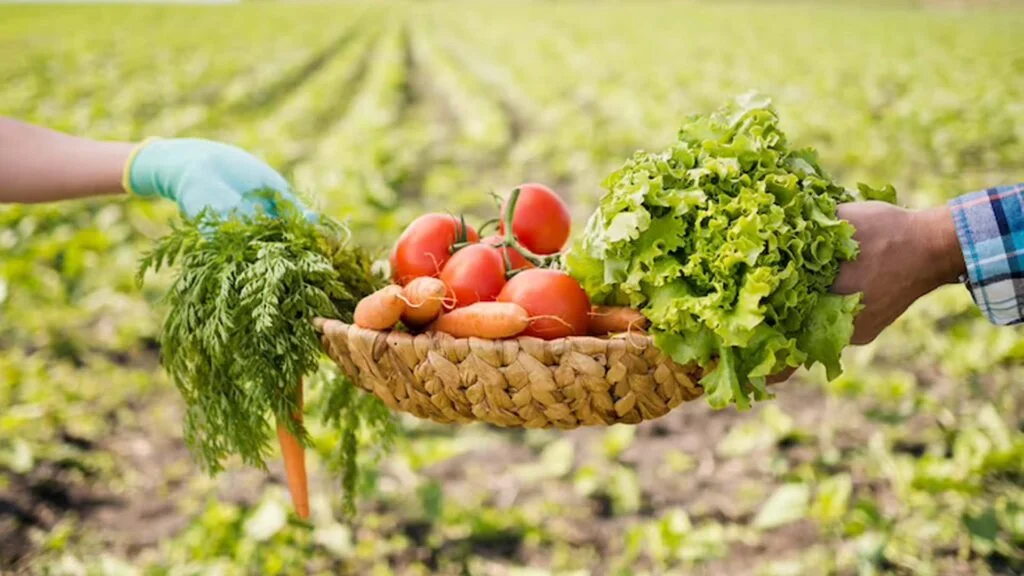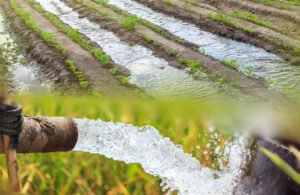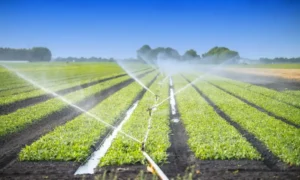Introduction
Water management is a critical component of sustainable agriculture, directly impacting crop yields, soil health, and environmental sustainability. As global populations continue to rise and climate change exacerbates water scarcity, efficient water management practices become increasingly vital for farmers.
Agriculture accounts for approximately 70% of global freshwater withdrawals, making it essential to optimize water use to ensure food security and protect natural resources. Effective water management not only helps conserve this precious resource but also enhances agricultural productivity by ensuring that crops receive the right amount of water at the right time.
This article explores various strategies for effective water management in agriculture, highlighting their benefits, scientific data, and practical applications. By understanding and implementing these strategies, farmers can improve their resilience to climate variability while promoting sustainable farming practices.
The Importance of Water Management in Agriculture
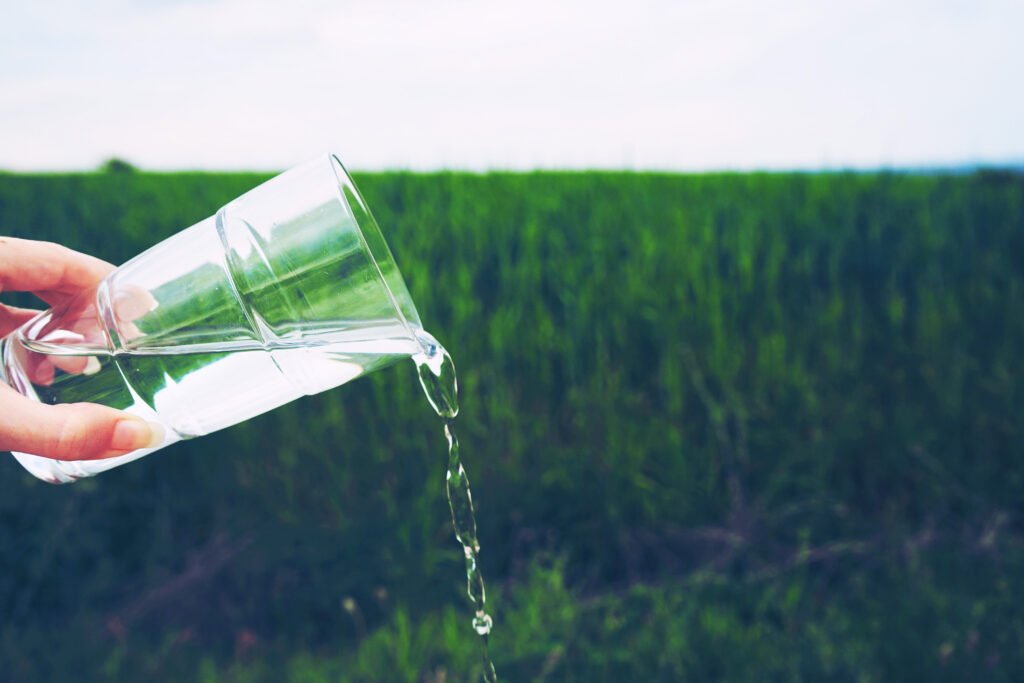
Water management involves planning, regulating, and distributing water resources effectively to maximize agricultural productivity while minimizing waste. Here are some key reasons why effective water management is crucial:
1. Enhancing Crop Yields
Proper water management directly influences crop growth and yields. Studies show that optimized irrigation practices can increase crop yields by up to 30%. For instance, implementing drip irrigation systems allows farmers to deliver water directly to plant roots, reducing evaporation and runoff.
2. Conserving Water Resources
With increasing competition for freshwater resources due to urbanization and industrialization, efficient water management helps conserve this vital resource. According to the Food and Agriculture Organization (FAO), adopting sustainable irrigation practices can reduce overall water consumption in agriculture by up to 50%.
3. Improving Soil Health
Effective water management contributes to healthier soils by preventing erosion and maintaining soil structure. Over-irrigation can lead to soil salinization, while proper management promotes nutrient retention and microbial activity.
4. Adapting to Climate Change
As climate change leads to more frequent droughts and unpredictable rainfall patterns, effective water management becomes essential for agricultural resilience. Farmers who implement adaptive strategies are better equipped to cope with these challenges.
Strategies for Effective Water Management
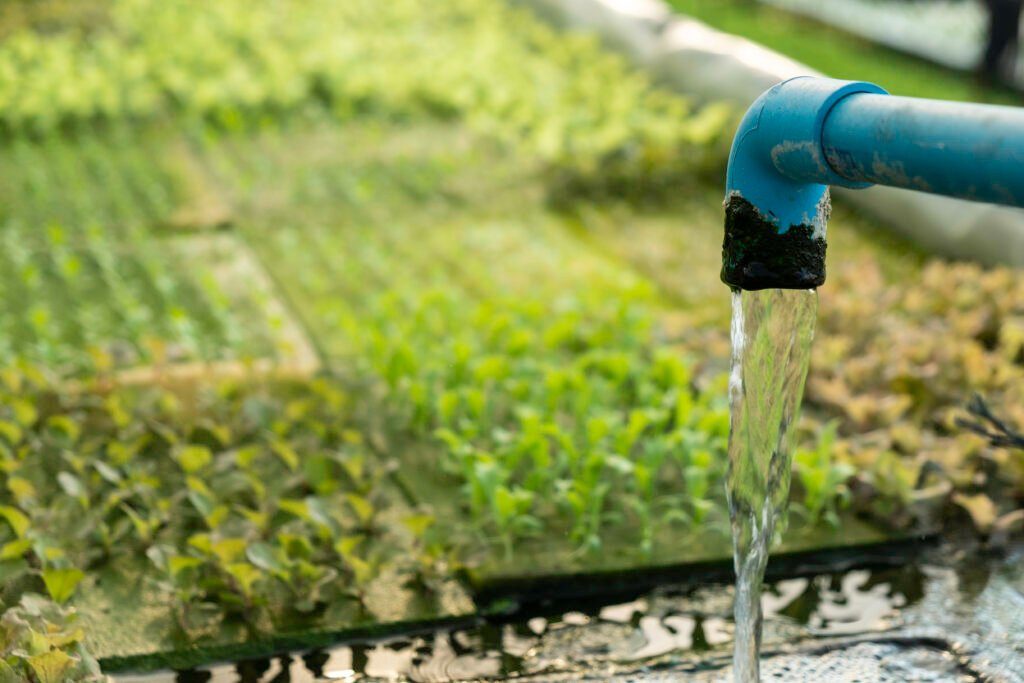
1. Irrigation Techniques
Choosing the right irrigation technique is fundamental for optimizing water use in agriculture.
Drip Irrigation
Drip irrigation delivers water directly to the plant roots through a network of tubing and emitters. This method minimizes evaporation and runoff while ensuring that crops receive adequate moisture.
- Benefits: Research indicates that drip irrigation can save up to 80% more water compared to traditional sprinkler systems while improving crop yields by 10-15%.
Sprinkler Irrigation
Sprinkler systems distribute water over crops like rainfall. They can be adjusted based on weather conditions and crop needs.
- Advantages: Sprinkler irrigation is versatile and can be used on various terrains; however, it may lead to higher evaporation losses compared to drip systems.
2. Rainwater Harvesting
Rainwater harvesting involves collecting and storing rainwater for agricultural use. This practice reduces reliance on groundwater and surface water sources.
- Implementation: Farmers can install rain barrels or larger cisterns to capture runoff from roofs or other surfaces during rainfall events.
- Impact: According to a study by the International Water Management Institute (IWMI), rainwater harvesting can increase agricultural productivity by up to 30% in regions with erratic rainfall patterns.
3. Soil Moisture Monitoring
Utilizing technology for soil moisture monitoring allows farmers to make informed irrigation decisions based on real-time data.
Soil Sensors
Soil moisture sensors provide accurate readings of moisture levels at various depths within the soil profile.
- Benefits: By using these sensors, farmers can irrigate only when necessary, reducing overall water usage while maintaining optimal growing conditions.
4. Crop Selection
Selecting drought-resistant crop varieties is an effective strategy for managing limited water resources.
Drought-Tolerant Varieties
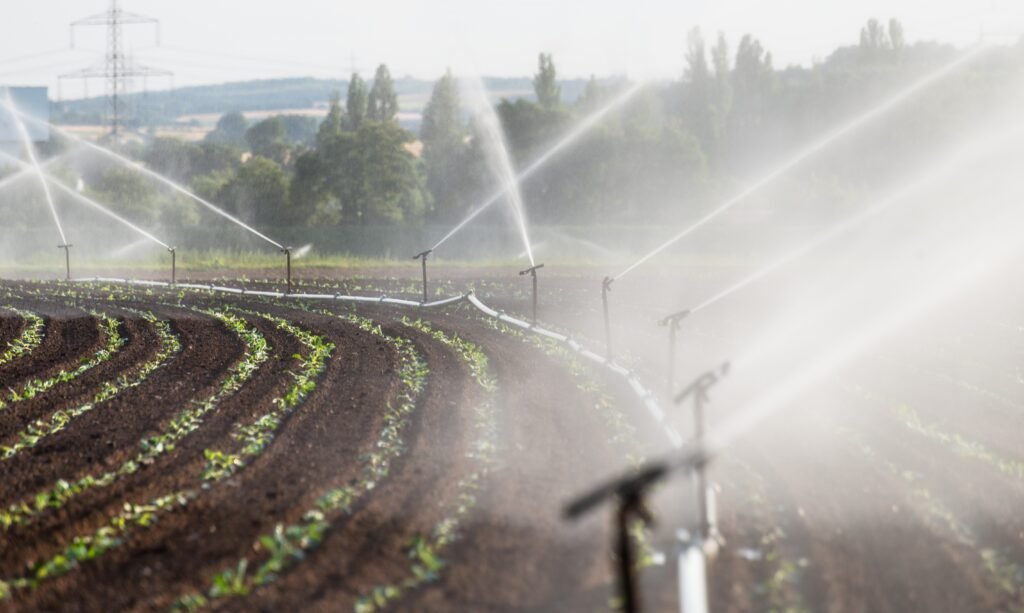
Planting crops specifically bred for drought resistance can significantly improve yields under low-water conditions.
- Examples: Crops such as sorghum and certain legumes have been shown to thrive with less water compared to traditional varieties.
5. Efficient Fertilizer Use
Proper fertilizer application can enhance a plant’s ability to utilize available water effectively.
Fertigation
Fertigation combines fertilization with irrigation, allowing nutrients to be delivered directly through the irrigation system.
- Advantages: This method ensures that nutrients are available when plants need them most, improving overall efficiency in both nutrient uptake and water use.
The Role of Technology in Water Management
Modern technology plays a significant role in enhancing water management practices in agriculture.
Precision Agriculture Tools
Precision agriculture utilizes data analytics and technology such as GPS and remote sensing to optimize irrigation practices based on field variability.
- Benefits: By tailoring irrigation schedules based on real-time data, farmers can significantly reduce waste while maximizing crop yields.
Smart Irrigation Systems
Smart irrigation systems automatically adjust watering schedules based on weather forecasts and soil moisture levels.
- Impact: These systems have been shown to reduce water usage by up to 50% compared to traditional methods while maintaining crop health.
Conclusion
Effective water management is essential for sustainable agriculture as it directly impacts crop yields, soil health, and environmental conservation.
By implementing strategies such as drip irrigation, rainwater harvesting, soil moisture monitoring, selecting drought-resistant crops, and utilizing modern technology, farmers can optimize their use of this vital resource.
As we face increasing challenges related to climate change and resource scarcity, adopting efficient water management practices becomes crucial for ensuring food security and promoting sustainable farming practices.
Explore innovative water management techniques today—consider implementing these strategies in your farming operations or support local initiatives focused on sustainable agriculture!
Q&A Section
Q: Why is effective water management important in agriculture?
A: Effective water management enhances crop yields, conserves vital resources, improves soil health, and helps farmers adapt to climate change challenges.
Q: What are some efficient irrigation techniques?
A: Efficient irrigation techniques include drip irrigation, sprinkler systems, rainwater harvesting, and smart irrigation systems that adjust based on real-time data.
Q: How does technology improve agricultural water management?
A: Technology such as soil moisture sensors and precision agriculture tools enables farmers to monitor conditions accurately and optimize their irrigation practices accordingly.
Resources
- Food and Agriculture Organization (FAO)
- International Water Management Institute (IWMI)
- USDA Natural Resources Conservation Service
- Sustainable Agriculture Research & Education (SARE)
- American Society of Agronomy
Read More
- Smart Farming: The Future of Modern Agriculture and Its Impact on Productivity
- Strategies to Increase Crop Yields in Agriculture: Effective Techniques for Farmers
- Types of Fertilizers: Benefits and Uses for Effective Crop Management
- The Importance of Sustainable Agriculture in Environmental Protection


